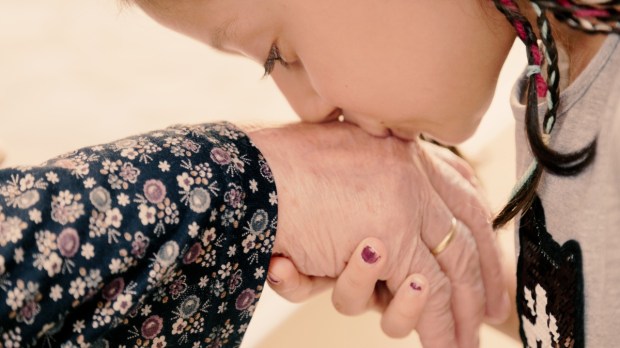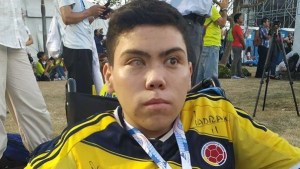Christmas Eve 1945 at the home of the Czekaj family in the village of Zielenice, Poland, was special, not only because the war had recently ended, but Aniela Czekaj’s mother-in-law announced to the entire family that Aniela, who had been paralyzed for four years, was expecting a baby.
Not an easy joy
The news raised a lot of questions and fears about Aniela, and the future of three children – the unborn child and his two older brothers, 8-year-old Stefan and 5-year-old Kazio. In Aniela’s husband Adam’s case, there was also some guilt. After years of self-imposed abstinence after Aniela became ill, they had recently decided to return to marital intimacy. It was her idea. But what if she died now or got worse?
Adam also felt guilty about adding work and worry to his mother, who took care of her daughter-in-law and also took care of the children while he worked in the fields or on the farm.
In August, a healthy and chubby son, Joseph, was born. Later, Aniela gave birth to two more children, both girls – the youngest at age 42. After many years, she died in old age, outliving her husband by several years. Although she never got out of bed, it can by no means be said that she had no part in raising her children. She learned to do many things with one hand, such as changing babies’ diapers.
When Stefan went to his First Communion, the priest spoke of Amiela as a model for other parents, because she had taught him the prayers and truths of the faith so well. She lived to see her children wed, and enjoyed her grandchildren. She and Adam said in their old age that they had a good and happy – though not easy – life.
Married on the Feast of the Exaltation of the Cross
The story of the Czekaj family was described by Rev. Jan Sledzianowski in his book I will not leave you until death (in Polish, “I nie opuszczę cię aż do śmierci”). Aniela and Adam had grown up in the same village, knew each other since childhood, and sang in the church choir. He liked her because she was cheerful, but not a showoff or scatterbrained. They married on September 14, 1936, the Feast of the Exaltation of the Holy Cross. Three sons were soon born to them, one of whom died in infancy.
Then, one August night in 1942, after a full day of work on the harvest, something happened that changed the fate of the entire family forever. The 29-year-old Aniela was awakened at night by a terrible headache. She had experienced migraines before, but this pain was exceptional. In the morning, she discovered to her horror that she had partial paralysis in her left arm and left leg. The doctor said the cause was a stroke.
Adam drove his wife to a hospital in Krakow. There, doctors determined that Aniela “was not alone” – that is, that she was pregnant. Without asking permission, she was given an abortion under the guise of performing a necessary operation. When Aniela found out what had happened, she was devastated. In addition, after the baby was killed, Aniela’s condition deteriorated greatly. Earlier she could stand and even take a few steps, supporting herself against the wall, but now she could at most sit supported by pillows. Faced with a lack of progress in treatment, Adam took her home for Christmas 1942.
Adam’s parents, who lived with them, believed from the beginning of their daughter-in-law’s illness that her place was at home with her husband and children. The elder Mr. Czekaj once said at a meeting where collectivization was being praised that he had two objections to the idea: that all three farmers from a neighboring village who had decided to collectivize were drunks, and that if everything was communal, then “their Aniela” would have to go to a nursing home.
When the Czekaj family’s son Joseph (the one whose appearance in the world was announced by his grandmother on a memorable Christmas Eve in 1945) married, he said to his wife and guests that there had never been discord, anger or quarrels in their home.
Love saves
Throughout the years of Aniela’s illness, people sometimes told her husband that “it was a pity for a peasant to be a cripple.” Another acquaintance urged him to be unfaithful to satisfy his needs, which he categorically rejected. “I always saw our marriage as a true exclusive union, faithful and indivisible until death, despite the incurable disease,” he said.
In the book, Adam Czekaj recalls that when Aniela proposed after four years of illness that they live as husband and wife again, she came to terms with the idea that she would never recover. Her joy in life returned. She stopped being afraid. Every day she offered herself to the Blessed Mother and prayed for her family, which she could not support with her work. “Love conquers fear and saves life,” she responded when he expressed doubts.



